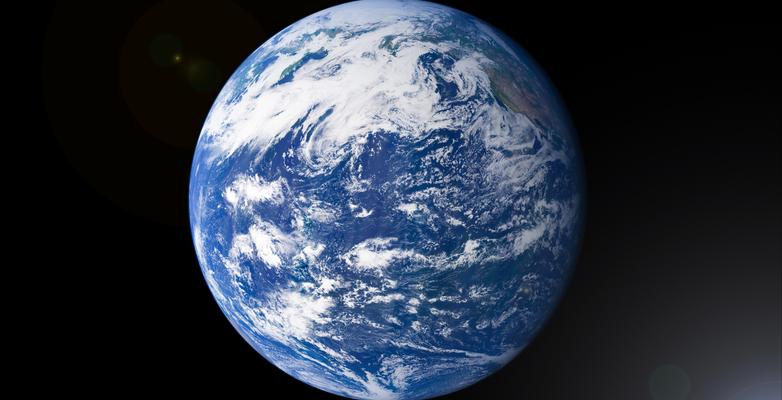
The IPCC Takes Its Last, Best Shot for the Planet
Some six years and countless hours of research from the world's top climate scientists boil down to three words: This is it.
We can do this.
That's bottom line of the Intergovernmental Panel on Climate Change's (IPCC) new report synthesizing roughly six years and six major reports exploring the wide-ranging impacts of the climate crisis and the choice of futures we face.
If you stop reading here, the key takeaway is that we can still stop global warming and prevent a future of climate catastrophe. The technology and tools we need are (mostly) in our hands today. But we have to move quickly and boldly, together as one planet.
Or, to boil it down to action movie cliches, it's go time.
A Survival Guide for Humanity
Hailed as "a survival guide for humanity," by UN Secretary-General Antonio Guterres, the new report compiles earlier reports on climate science, impacts and adaptation, and potential mitigation paths, among other areas, in a definitive final statement on the historic choice humanity faces in what is our last window to make it.
As the authors note, "The choices and actions implemented in this decade will have impacts now and for thousands of years."
What may be the most telling shift from previous iterations – and most quietly unsettling feature – is the consistent use of the present tense. Burning fossil fuels has already caused global temperatures to rise 1.1 degrees Celsius from pre-industrial times, leading to the mass extinction of species, spreading disease, diminishing farm productivity, and pushing glaciers and other ecosystems closer and closer to irreversible changes. Already.
Limiting these losses and creating something like a livable future, the authors make clear, hinges entirely on our ability to hold warming to close to 1.5 degrees. Which in turn depends how quickly and deeply we can cut greenhouse gas emissions in the next few years. And ultimately, how fast we can get to net zero.
Fail, and every fraction of warming above 1.5 opens the door not only to greater climate disruption and ecological destruction, but related human conflicts in an increasingly interconnected world. Already, we've seen climate change unleash famine in Madagascar and force millions from their homes. Exceed 1.5 degrees and we face a future of climate-fueled events we simply cannot adapt to.
There is a real chance we cross that line even faster than previously thought. But there's also the very real chance that this can be temporary and – with concerted and society-wide action – bring temperatures down again within decades and enable the planet to heal.
The Choice Is Ours
Even as the report underscores our fast-closing window to hold to 1.5 degrees or close, the authors are equally insistent on the fact that we still can. As one of the core writing team told the Washington Post, “It’s not that we are depending on something that still needs to be invented,” she said. “We actually have all the knowledge we need. All the tools we need. We just need to implement it.”
Implementing "it" here means rapid and deep emissions cuts by 2030 that together with aggressive adaptation measures "would reduce projected losses and damages for humans and ecosystems (very high confidence), and deliver many co-benefits, especially for air quality and health." The co-benefits here are real, with fossil fuel pollution contributing to a staggering one in five deaths in 2018 alone, according to one study.
So What's In the Way?
The timing of this report matters. Immensely.
The call to slash emissions is not new. The world has just lived through nine of the 10 warmest years on record. And yet, we set a new record for global emissions in 2022.
So what's holding us back?
Political will, for one. Fossil fuel interests, for another.
Fueled by a year of record profits, major oil producers are. now backtracking on climate commitments as quickly as they can. And they want you to know that they're not going anywhere. As Occidental CEO Vicki Hollub told the crowd at the energy industry's recent CERAWeek gathering, “If we do it right – and we are headed down the path to do it right – then our industry will be around for 60, 70, 80 years.”
Of course, we don't have another 60 years. One of the key and repeated findings in the report is that any further investment in fossil fuels effectively shuts the door on 1.5 degrees.
Not that petrostates seem to care. Looking ahead to the UN's COP 28 climate conference in November – hosted by the world's seventh-largest oil producer, the United Arab Emirates, and led by the CEO of UAE's national oil company – the secretary-general of the Organization of Petroleum Exporting States (OPEC) told attendees at a Cairo press conference, "It is imperative that all parties involved in the ongoing climate negotiations pause for a moment; look at the big picture."
As he explained, the UAE hosting COP 28 will, “serve as a fresh opportunity to explore inclusive, sustainable and consensus-based solutions to climate change.”
In other words, the fossil fuel industry is doing everything it can to set the terms of energy transition. On its terms. And it's telling us openly.
COP 28 will be critical if we are to have to any shot at 1.5 degrees. As the IPCC highlights, current national commitments are way off the pace and the levels of finance necessary to speed a just transition to clean energy and truly equitable adaptation worldwide are many times too short.
The conference will also host the Paris Agreement's first global stocktake effort to assess where we are (or aren’t) in meeting our commitments to slashing emissions and stopping warming.
There is cause for hope. UN Secretary-General Guterres has called for an "Acceleration Agenda," with developed nations moving their net-zero targets a full decade forward from 2050 to 2040 and ending financing for fossil fuel projects, among other goals.
Meanwhile, the past 12 months have seen the passage of the landmark Inflation Reduction Act in the US and the Climate Change Act in Australia. Meanwhile, spurred by Russian aggression in Ukraine, the EU has rapidly expanded clean energy use at a pace that has defied all projections.
These laws – together with the EU's Green Deal – don't go far enough to get us to 1.5 degrees. But they're a critical first step. And they begin or accelerate a process of industrial transformation that enlists those of us outside the halls of power in remaking our economies and societies. In building a world that simply no longer wants oil, coal, and gas. Yes, the oil majors and petrostates have incredible influence today. But dry up demand, and we can go long way to drying up the industry killing our planet.
Our Final Window
One way to see the IPCC report then, is as climate science's last stand. After all, the next IPCC report won't come out for another five to seven years. Which is more or less the time we have to reshape our energy systems and our world if we want anything like a livable future. It sounds dramatic, maybe. But it happens to be the truth.
Science has said its piece. Dropped the mic. Now it's up to us to answer.
Learn how you can use US climate laws to help stop global warming and build a better future powered by clean energy by registering for our free online training, Power Up: From Acts to Action, starting April 6. Registration closes March 22.




